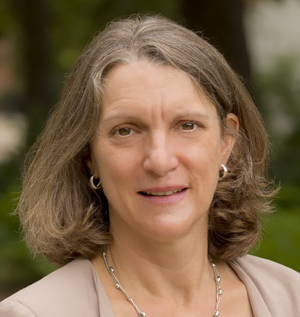
From prediction to insurance consideration to ecological aftermath, Florida State University experts are among the world leaders in the study of hurricanes and their impact on people, property and the environment. These experts are available to answer media questions and provide perspective for news stories regarding the impact of Harvey, Irma and other named storms throughout the 2017 season, which ends Nov. 30.
FORECASTING, FORMATION AND TRACKING
Mark Bourassa, professor of meteorology, (850) 645-4788; Bourassa@coaps.com
Bourassa’s expertise is in air-sea interaction, satellite observation of the atmosphere and ocean, tropical meteorology and boundary layer meteorology. He is also an expert in surface water waves and the identification of tropical disturbances — possible precursors to tropical cyclones. Recent work has involved remotely sensed estimates of the energy released in storms as water vapor is converted to precipitation.
Dmitry Dukhovskoy, associate research scientist at the FSU Center for Ocean-Atmospheric Prediction Studies (COAPS), (850) 644-1168; ddukhovskoy@fsu.edu
Dukhovskoy’s research interests focus on numerical modeling of ocean physical processes including ocean dynamics, storm surges, air-sea interaction, waves and tides. He has investigated topographically trapped waves, deep-water processes and ocean responses to hurricanes and storm surges.
Jeffery Chagnon, assistant professor of meteorology, (850) 566-3800; jchagnon@fsu.edu
Chagnon is an atmospheric scientist whose research covers a broad range of topics in synoptic and mesoscale meteorology. The overarching aims of his work are to advance our theoretical understanding of weather phenomena and to improve our ability to model and predict the weather.
James Elsner, Earl & Sofia Shaw Professor and chair of the Department of Geography, (850) 566-3800; jelsner@fsu.edu
Elsner is an expert on hurricanes and statistical models for long-range prediction. He researches the development of the science and technology for modeling the risk of a catastrophic storm along the nation’s coastline. He studies the relationship of hurricanes to climate factors, including El Niño and climate change. He also is the president and CEO of Climatek, a company that develops software for hurricane and tornado risk models.
Steve Morey, associate research scientist at the FSU Center for Ocean-Atmospheric Prediction Studies (COAPS), (850) 644-0345; smorey@coaps.fsu.edu
Morey’s research focuses on studying physical processes and circulation within the Gulf of Mexico. He conducts studies of estuarine systems and their connectivity to the offshore environment, the ocean response to hurricanes and deep-water processes over steep topography. He has recently worked with a team at COAPS on developing computer models of storm surge and coastal flooding.
COASTAL WILDLIFE EFFECTS
Thomas Miller, professor of biological science, (850) 644-9823; miller@bio.fsu.edu
Miller researches coastal dune vegetation and the forces that structure plant communities on barrier islands, especially in the northern Gulf of Mexico. Miller has been conducting a long-term study of the vegetation on St. George Island to isolate the effects of hurricanes, drought, geomorphology and succession on the patterns of individual species and abundance and community diversity through time.
RISK MANAGEMENT
Jack E. Nicholson, research faculty and director, Florida Catastrophic Storm Risk Management Center, College of Business
(850) 644-8217; jnicholson@business.fsu.edu
Nicholson served as the Chief Operating Officer of the Florida Hurricane Catastrophe Fund for the State Board of Administration of Florida for more than 20 years. Before that, he was a senior level manager for the Florida Department of Insurance. Nicholson has been involved in hurricane catastrophe issues from a regulatory, legislative and administrative standpoint since Hurricane Andrew in 1992.
Patricia Born, Payne H. and Charlotte Hodges Midyette Eminent Scholar in Risk Management & Insurance, College of Business
(850) 644-7884; pborn@business.fsu.edu
Born’s research is focused on the measurement of catastrophic risks and evaluating post-disaster responses of insurers and individuals. Her current research examines trends over the past 30 years in how insurers have repositioned themselves to bear the risk of natural disasters, including changing their capital structure, diversifying their exposures to different types of events and using a variety of risk transfer techniques.
Lynne McChristian, Teaching Faculty and Executive Director of the FSU Center for Risk Management Education & Research, College of Business
lmcchristian@fsu.edu
Since 2008, McChristian has been affiliated with the Insurance Information Institute (I.I.I.), an industry trade association based in New York that is a resource for understanding insurance coverage issues. She also served as the I.I.I.’s Catastrophe Response Director. McChristian has held executive management positions at several insurance companies over the past 25 years and has expertise on disaster preparedness, response and recovery.
URBAN PLANNING
Tisha Holmes, assistant professor, Department of Urban & Regional Planning
(850) 645-7889; ttholmes@fsu.edu
Holmes studies climate change and adaption strategies in coastal areas. Her interests include promoting socio-ecological resilience in disparaged communities, planning in ecologically sensitive areas and community participation and engagement. Her work seeks to uncover the intricacy of issues facing highly vulnerable localities while engaging and empowering communities to identify and direct their pathways towards shaping more resilient places.
FIRE ANTS
Walter Tschinkel, professor emeritus, Department of Biological Science
(850) 294-1265; tschinkel@bio.fsu.edu
Tschinkel is an internationally known entomologist and a Robert O. Lawton Distinguished Professor at Florida State University. He is the author of the book The Fire Ants and can speak to the floating fire ant colonies that have developed in the wake of Harvey.
COPING WITH STRESS
Greg Hajcak, professor of biomedical sciences, Department of Psychology/Neuroscience
(850) 645-9268; ghajcak@neuro.fsu.edu
Hajcak is a clinical psychologist and expert on the diagnosis and treatment of anxiety. He can offer tips on handling stress and anxiety. He says humans have an inherent fear of uncertainty and the unknown, and accepting anxiety is a better first step than struggling against it.
Brad Schmidt, distinguished research professor, director of the Anxiety and Behavioral Health Clinic
(850) 644-1707; schmidt@psy.fsu.edu
Schmidt’s research focuses on the prevention and treatment of anxiety, as well as the relationship between anxiety pathology and physical health.




